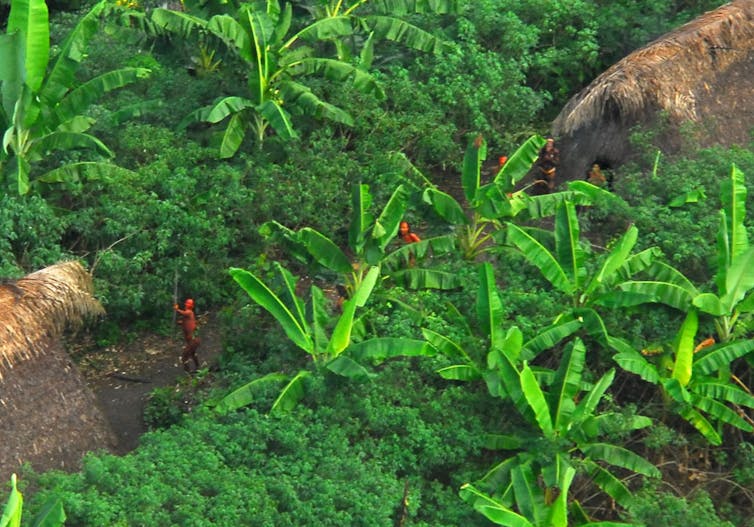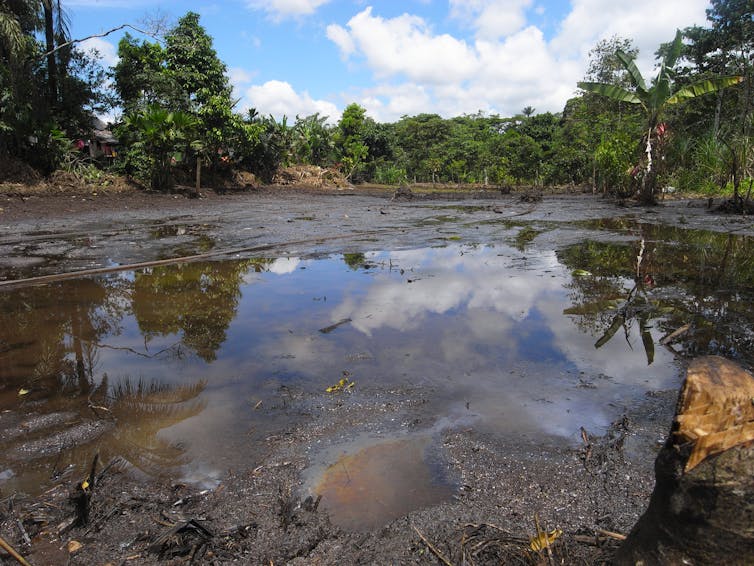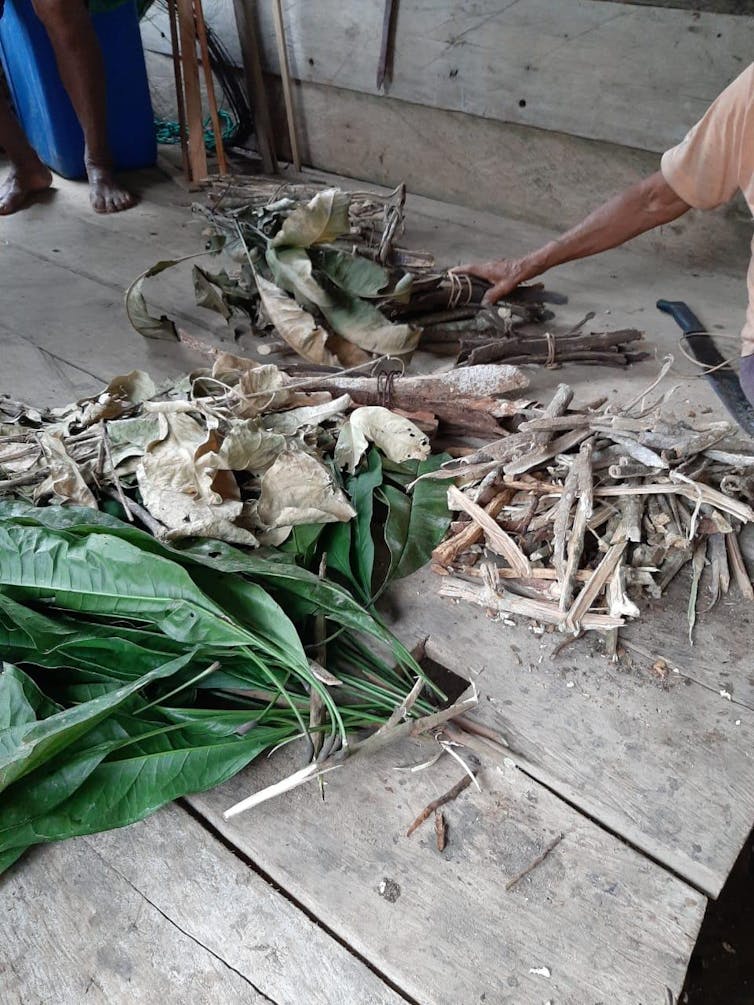For indigenous people in the Amazon, the lockdown may be a greater worry than the coronavirus disease itself.
NINA MOELLER, COVENTRY UNIVERSITY
ISRF Independent Scholar Fellow 2016-2017
JM PEDERSEN, COVENTRY UNIVERSITY
Honorary Research Fellow, Centre for Agroecology, Water and Resilience, Coventry University

A 15-year-old boy from a remote region of the Brazilian Amazon, near the border with Venezuela, died of COVID-19 on April 9. A member of the 35,000-strong Yanomami people, the boy was the first known death among Brazil’s indigenous communities in the current pandemic. There are now growing fears that COVID-19 will wreak havoc across the Amazon.
This fear is unsurprising, given an estimated 90% of the original inhabitants of the Americas died as a result of European colonisation, especially through the infectious diseases Europeans brought with them. Fragmented collective memories of deadly pandemics from the time of distant ancestors still circulate in stories of magical deaths caused by foreigners.
We have worked with indigenous communities and federations in the region since 2005, witnessing their continuing struggle against deforestation, and the wider fallout from relentless urbanisation – the very conditions that make zoonotic spillover and new infectious diseases more likely.
Varied lives
Well ahead of government action, indigenous federations across the Amazon launched extensive campaigns to mitigate the pandemic and its socio-economic consequences.
This is not a straightforward task. Amazonian people live varied lives ranging from communities many days’ canoeing beyond the nearest roads to urban existences entirely dependent on constant cash flow for survival; from landowners to landless; and from those who possess traditional knowledge of forest nourishment and medicines, to those who reject the old ways in favour of mobile phones and computer games. The impact of COVID-19 on indigenous peoples will be as varied as their circumstances.

For the few who still enjoy functional autonomy in remote communities there is little change: the outside world is an ever encroaching threat and the longer isolation can be maintained, the longer cultural survival can be ensured.
Many Amazonian people are particularly vulnerable to infectious diseases. They are exposed to the effects of mining and oil extraction and institutionalised racism, which makes it harder for them to access good education, healthcare, and jobs.
One threat among many
Both legal and illegal resource extraction continues despite the lockdown. Illegal operations are in fact expanding in the absence of an active resistance, disregarding travel restrictions and potentially increasing the spread of infection. Some suspect illegal miners may have brought COVID-19 to the Yanomami.

We asked our network of connections in the Ecuadorian Upper Napo and the Peruvian Ucayali regions about local perceptions of needs and wants. While many are out of reach at the moment, having retreated to villages and communities without internet, the message from road-accessible Kichwa communities is unanimous: while concerned about the new disease, a much greater worry is posed by the lockdown. One traditional healer told us: “We have the plants to cure ourselves, but now that we are not allowed to go anywhere, we cannot earn any money.”

Many indigenous families need to bring produce to market, in order to supplement their subsistence, fuel generators and canoes, service debts, and access phones or internet. The lockdown prevents all this. In the absence of any social welfare or other economic support, this is as devastating in the Amazon as it is anywhere.
Among indigenous communities on the urban fringes in the Napo, there is a surge of interest in planting medicinal trees and plants in response to the pandemic. However, for the increasing number of indigenous families who do not have access to land – their territories invaded, degraded, and split into ever smaller parcels – the situation is catastrophic. Unsurprisingly, women and children suffer most, as alcohol consumption and domestic violence grow alongside boredom and desperation.
As we write, indigenous communities are taking matters into their own hands across Amazonia. They are closing down access routes and retreating deeper into the forest. Whenever possible they escape into ancestral territories, sometimes to places of cultural or spiritual significance.![]()
Dr Nina Moeller
Associate Professor, Centre for Agroecology, Water and Resilience, Coventry University
My academic background is in philosophy, sociology and anthropology.
Since 2005 I have been working in the Amazon, with Kichwa communities and federations in the Upper Napo, Ecuador. I also maintain relations with Shipibo community leaders in the Ucayali, Peru and have worked in Latin America and Europe as a consultant to indigenous federations, NGOs, and the United Nations’ Food and Agriculture Organization. I wrote my PhD on ‘The Protection of Traditional Knowledge in the Ecuadorian Amazon: A Critical Ethnography of Capital Expansion ‘ (2010).
Dr JM Pedersen
Honorary Research Fellow, Centre for Agroecology, Water and Resilience, Coventry University
Research Interests: Prehistory, evolutionary biology, animism and astrophysics (what’s out there and how can it enrich our ontology?), microbial dimensions (what’s in there and how can we better relate?) – and pretty much any other perspectives on human, community and planetary health, such as nutrition and health science, especially fermentation and metabolic literacy, in the context of agroecology, as well as property relations and the prospects of commoning: after all, little matters more than who owns what and what we can do to sort ourselves out.